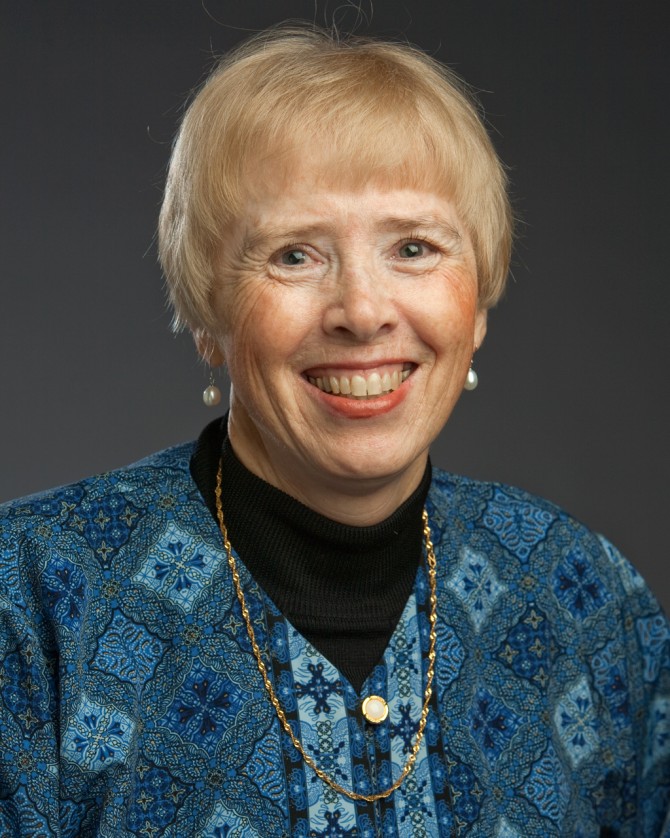Rosemary Caffarella, adult educator and humanitarian, dies at 76
By Krisy Gashler
Rosemary Caffarella, a former professor of education at Cornell whose inclusive approach to adult and continuing education helped transform her field, died Dec. 30, 2022, in Ithaca. She was 76.
Caffarella was an international leader in adult education, authoring or co-authoring 14 books, including two that are still widely used in universities across the country: “Learning in Adulthood: A Comprehensive Guide,” and “Program Planning for Adult Learners: A Practical Guide.”
“Learning in Adulthood” has been translated into Chinese, Japanese and Korean.
“Rosemary broadened the perspective of adult learning by saying it’s not just about formal education but should include how adults learn throughout their life spans,” said Kathy O’Kane Kreutzer, a former student of Caffarella’s, who is now director of special projects in faculty affairs for the Virginia Commonwealth University School of Medicine.
“She opened up ‘education’ to mean all kinds of learning: hobbies, learning through work, learning through relationships at home,” Kreutzer said. “It was a much broader and more inclusive approach that today is accepted as standard in the field.”
Caffarella’s interest in adult education began in the 1970s, when her father suffered a stroke. As he tried to relearn how to read and write, his therapists treated him like a child and used flashcards with “rubber duckies,” farm animals and other materials designed for children. The experience, detailed in “Program Planning for Adult Learners,” led to Caffarella’s dissertation and then her lifetime of work supporting adult learners.
Caffarella was born Feb. 19, 1946, in Hackensack, New Jersey. She graduated from Springfield College then earned her M.S., Ed.S. and Ph.D. from Michigan State University. She held faculty and administrative positions at the University of Maine, Virginia Commonwealth University and the University of Northern Colorado before joining Cornell as a professor in the Department of Education in 2002; she retired in 2012.
Sandy Daffron, professor emerita of adult and continuing education at Western Washington University, co-wrote the third edition of “Planning Programs for Adult Learners” with Caffarella and wrote the fourth edition after Caffarella’s retirement. Daffron credited Caffarella and Sharan Merriam, professor emerita of adult education at the University of Georgia, with pioneering the principles and strategies that are now dominant in their field.
“Rosemary and Sharan were both young women professors in the field of adult education in the 70s when the field primarily was filled with men,” Daffron said. “They supported each other, attended conferences together, wrote books together, and their friendship endured until the end. They were pioneers in our field, and have unselfishly given much of their lives to adult education.”
As part of her community outreach work in adult education, Caffarella co-launched the Malaysian Breast Cancer Project, which helps educate Malaysian women and doctors about screening and treatment for breast cancer. In the United States, 2.5% of women who develop breast cancer die from it; in Malaysia, the estimated figure is almost 50%.
The project began when another scholar, Maznah Muhamad, a professor of continuing education at Universiti Putra Malaysia, developed breast cancer while in the U.S. on a Fulbright scholarship. The quick treatment Muhamad received saved her life, and she became committed to helping other Malaysian women survive the disease, Daffron said.
Caffarella, who was also a breast cancer survivor, joined Muhamad in leading the project, along with Daffron and Merriam. Today, the project is called KanWork, is overseen entirely by Malaysians and includes 900 survivors who serve as volunteers educating women about the importance of prevention, early diagnosis and treatment.
Caffarella was preceded in death by Ed Caffarella, her husband of 53 years. They are survived by a daughter, two grandsons and extended family.
Krisy Gashler is a writer for the College of Agriculture and Life Sciences.
Media Contact
Get Cornell news delivered right to your inbox.
Subscribe

